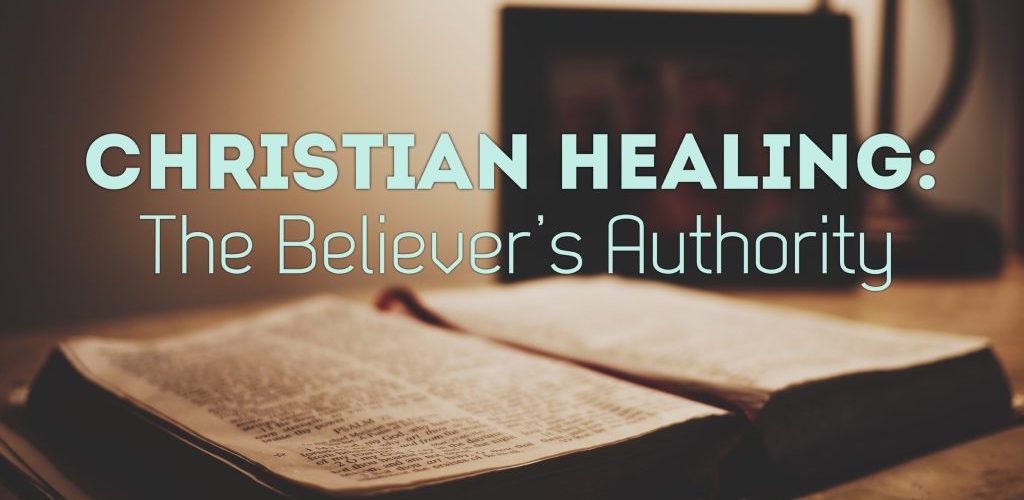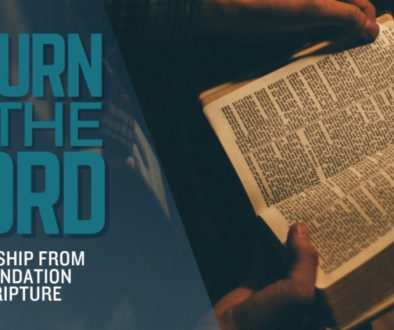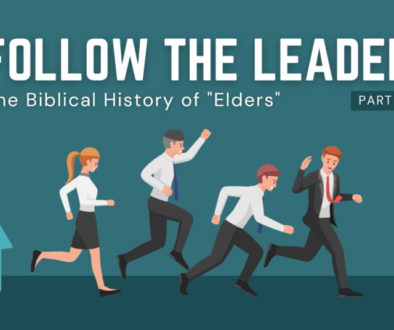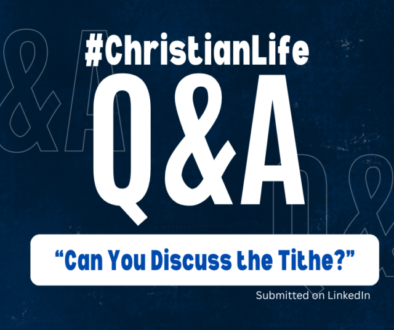In the last post, we discussed the issue of whether or not Christian healing is for today. Concluding that there is no biblical expectation that this (or any) spiritual gift would cease in the first century, we must now turn our attention to the practice of Christian healing. As I have studied scripture, I see two major elements continually at play when the Bible discusses the issue: the believer’s authority to heal given by Jesus and the anointing for healing which comes from the Holy Spirit.
Although these two things work in tandem (and are often indistinguishable in Jesus’ ministry), I believe it will be helpful to discuss them separately. Therefore, in this post and the next, we will take on the topic of the believer’s authority to heal, then later we will look at the Holy Spirit’s power for healing.
In laying the foundation for the believer’s authority to heal, there are two areas we must discuss. The first is our own beliefs and expectations concerning our authority to heal, which we will discuss today, and then how we put that authority into practice, which we will tackle in the next post.
The Basis of Our Authority to Heal
Jesus made a very casual statement in the book of John, which has been the topic of much disagreement between Christians for millennia. However, as you know, my general approach is to simply take the Bible at it’s word unless there is something to imply there is more behind what is stated. In this case, there does not seem to be a hidden meaning.
Jesus’ statement was this:
“Truly, truly, I say to you, whoever believes in me will also do the works that I do; and greater works than these will he do, because I am going to the Father.
John 14:12
This verse follows after an explanation in verse 10 that everything Jesus was doing was not on His own authority, but an extension of the authority of God. He then gives us His radical expectation that if a person would believe in Him, then that person will also do what He does!
We have previously discussed that what He did was to fulfill all the Messianic prophecies he quotes in Luke 4:18-19. One of these Messianic promises which Jesus was doing daily when He made this statement was healing the sick, and now He says he expects that the disciples belief in Him would translate into their doing the same thing!
Advertisement:
The Name of Jesus – Our Place of Authority
Looking again at John 14, Jesus goes on to say:
Whatever you ask in my name, this I will do, that the Father may be glorified in the Son. If you ask me anything in my name, I will do it.
John 14:13-14
From this passage of scripture alone, it is easy for the human mind to race with unlimited possibilities. After all, Jesus said “whatever you ask,” I will do. Unfortunately, though, within the passage itself there is a limitation on the scope of this promise. It does not mean we can ask Jesus for a new Land Rover or for a million dollars, and expect it to come.
His statement that He would do “whatever we ask” was directly tied to our accomplishing the same works that He was doing by the Father’s authority! He is implying a chain of command!
Jesus’ Authority Becomes Our Authority
God commanded Jesus to heal the sick, in fulfillment of His promises (see John 5:19). That command carries with it the authority of the One giving it. Then, in the same way, Jesus commands those who would believe in Him to continue doing His work – including healing the sick. This command, therefore, also carries the same authority of God to do so that Jesus had. This is why when we pray for the sick, we pray “in Jesus’ name.”
That phrase — “in Jesus’ name” — means that we are praying as someone who has a right to be heard in the heavenliness, because we have Jesus’ authority backing us up! It is the same as when a police officer shouts, “stop in the name of the law,” or when a judge places his name on a court order. The name of the person in authority is what validates the command, even when someone else enacts it! (We will discuss this topic further in the next post.)
What I want you to understand for now is that Jesus’ gave His own authority to the church, to continue the works He began, and He expects them to continue “in His name!”
Jesus Gave His Authority (Before He Gave His Holy Spirit)
Most people look at healing and think, “Well, I don’t have that gift” or “God can do whatever He wants to do. It’s not up to me.” This isn’t a correct attitude, however. This is why I said we must first fix our belief system, before we can talk about the practice of healing itself!
Do you realize that Jesus’ first commissioning on His disciples was not an impartation of the Holy Spirit — He would not impart the Holy Spirit to them until after the resurrection in John 20:22, and again at Pentecost. His first commissioning was an impartation of His authority:
And he called to him his twelve disciples and gave them authority over unclean spirits, to cast them out, and to heal every disease and every affliction.
Matthew 10:1
After listing the names of the 12, it goes on:
These twelve Jesus sent out, instructing them, “Go nowhere among the Gentiles and enter no town of the Samaritans, but go rather to the lost sheep of the house of Israel. And proclaim as you go, saying, ‘The kingdom of heaven is at hand.’ Heal the sick, raise the dead, cleanse lepers, cast out demons. You received without paying; give without pay.
Matthew 10:5-8
Jesus does not tell the disciples to go and “pray for the sick.” He told them to go heal them. The disciples did it through the authority they had been given!
In Luke 10, Jesus “appoints” 72 others with the same authority and the same commissioning!
Whenever you enter a town and they receive you, eat what is set before you. Heal the sick in it and say to them, ‘The kingdom of God has come near to you.’
Luke 10:8-9
I believe these instructions — proclaim the gospel, heal the sick, and cast out demons — are primarily what Jesus is referencing in Matthew 28, when He says “teaching them to obey everything I have commanded you,” in the Great Commission. This is also validated by Marks’ rendering of the Great Commission in Mark 16.
…And these signs will accompany those who believe: in my name they will cast out demons; they will speak in new tongues; they will pick up serpents with their hands; and if they drink any deadly poison, it will not hurt them; they will lay their hands on the sick, and they will recover.”
Mark 16:17-18
It is Your Authority to Heal
You may be asking, “why does any of this matter?” After all, haven’t we already laid a foundation and know that healing still happens today from the last posts?
Yes! But the point I want to make today is that not only does healing still happen, but that YOU, as a believer, have been given the authority to heal the sick. It is not someone else’s job.
The bible says that “all may prophesy,” not just the prophets (see 1 Corinthians 14:31). It also instructs all believers are to “do the work of an evangelist,” not just those with the gift of evangelism (see 2 Timothy 4:5). In the same way, the Bible teaches that all believers have authority over sickness and disease in Jesus Christ! However, we MUST believe in this truth, before we can effectively operate in healing.
Advertisement:
The Necessity of Faith
The Bible makes it very clear that there is a direct link between our belief and our authority to heal. Before we can get to the “doing” what Jesus did, we must do the harder work of “believing” what Jesus said.
Over and over again, the Bible tells us that it is belief that matters. One example is in the book of James:
Is anyone among you sick?… the prayer of faith will save the one who is sick, and the Lord will raise him up…
James 5:14-15
In another story, Jesus comes out of His private prayer time and finds the disciples unable to heal a child with a demonically-caused epilepsy. After He heals the child, the disciples ask why they weren’t able to do so. Jesus answers:
He said to them, “Because of your little faith. For truly, I say to you, if you have faith like a grain of mustard seed, you will say to this mountain, ‘Move from here to there,’ and it will move, and nothing will be impossible for you.”
Matthew 17:20
When Mark shares his version of this same story, the family demands to know if Jesus can heal their child after his disciples had failed. Jesus reassures them:
(The boy’s father said) “But if you can do anything, have compassion on us and help us.”And Jesus said to him, “‘If you can’! All things are possible for one who believes.”
Mark 9:23
The Faith of the Sick Person
From this verse, it seems that not only does Jesus place the onus of faith on the one doing the healing, but He also includes the faith of the sick to be healed, as well as those in the crowd around Him!
It is true that not only the faith of the one praying matters. After all, how many times do we see Jesus, the one who IS God, not base His authority for healing on Himself, but also on those He is ministering to? How often do we hear Him say the words, “Your Faith has made you well”? (See Luke 8:48, 17:19, 18:42, Mark 5:34, 10:52, and Matthew 9:22 for examples).
Still, I would caution putting too much emphasis on the faith of others, though, as you practice your own authority to heal. After all, when Jesus went to Nazareth — the faithless city — the Bible says:
And he could do no mighty work there, except that he laid his hands on a few sick people and healed them. And he marveled because of their unbelief. And he went about among the villages teaching. Mark 6:5-6
Even when he could do no great miracles due to their lack of faith, Jesus’ authority to heal the sick was still working!
I will add that in my own experience, some of the most radical healings I have seen have been while praying for people who didn’t believer, and/or being surrounded by unbelievers.

You Have The Authority of Christ to Heal
The dynamic of the believer’s authority to heal is undeniably tied to their ability to believe, even more than it is tied to the power of the Holy Spirit working inside us. Again, I believe both are necessary, but you cannot deny that in the examples we have shared today, Jesus and those He personally trained healed people by their authority more than by their anointing!
Yes, there are those who are given a special anointing to heal, but healing in the Bible is not just a gift of the Spirit. It is a part of your inheritance in Christ. It is within your authority as a representative of heaven on earth. All you must do is believe it in order to see it.
In the next post, we will lay the foundation for how to operate in your authority, and actually heal sickness and disease, in Jesus’ name. For now, I would love to hear your thoughts, questions, and testimonies in the comments below!
If you are looking for a good resource on the authority of the believer to heal, I would recommend the book, “Authority to Heal: Restoring the Lost Inheritance of God’s Healing Power” by Randy Clark.
As always, if you are enjoying what you are reading on my blog, I would also be honored if you would subscribe to my weekly email below. You can also follow me on Facebook, Instagram and Twitter for regular blog updates, and other ongoing #ChristianLife and #GospelLeadership insights!
If you’re enjoying the content I produce, a little caffeine to keep me going would be appreciated!
Advertisement:
© Anthony Scott Ingram 2020. All Rights Reserved.
Photo by Aaron Burden on Unsplash
Unless otherwise indicated, all Scripture quotations are from The Holy Bible, English Standard Version®, copyright © 2001 by Crossway Bibles, a publishing ministry of Good News Publishers. Used by permission. All rights reserved.”
Please note that I do get a small kickback from Amazon for any purchases made using the links on this post. Should you choose to purchase from them, I just want to say thank you for further supporting my work in ministry!






February 27, 2021 @ 9:17 pm
In my quest for healing, I came upon theses posts and while I knew all of these verses, I never applied them this way. Or maybe I believed they only applied to the early church. I am inspired and hold hope for healing in Jesus name!
March 2, 2021 @ 2:53 pm
I change my comment, I don’t hold hope, I have faith that I have already received healing!
April 15, 2024 @ 1:31 am
Hello
Thankyou for your book and article. I have enjoyed reading it.
What are your thoughts on Christians praying for healing for themselves? Commanding the sickness/ cataract / deafness to leave etc?
June 25, 2024 @ 2:31 am
I do believe in praying for ourselves for sickness, and have had some success. However, I also think there is something powerful in the community of faith, and I have always found it more effective to have others pray for me when I’m sick, even though I pray for thousands of people each year and see them healed.
November 4, 2024 @ 9:04 pm
I used to believe in it only because I heard it but never saw it happen. I been sick for almost 11 years and nothing. I prayed for my dad, he died. I prayed for my mom she still sick I prayed for so many and they all died. I won’t pray anymore I don’t know how to. I stopped going to church and I have no friends. 52 years old. This is damaged teaching.
December 2, 2024 @ 4:26 am
I’m so sorry for your situation, John. Sincerely! And I do not have an answer as to why healing does not always happen for everyone. I pray that your experience does not lead you to doubt Jesus and His love for you. Experience is a bad driver of theology!
I grew up in a family, attended a Bible college, and was on staff at churches that did not believe in healing. While they would share their views as though they were based in scripture, the point always came down to, “I have never experienced it, and until I do, I will not believe.” Unfortunately, the biblical dynamics require things to be the other way around. A person cannot receive from God what they do not believe He is willing to give (Hebrews 11:6). And still, there is the reality that sometimes Jesus does for others what He cannot do for us, due to some unknown reason. This was the case for John the Baptist, who was destined to die in prison. Jesus quoted for him from Isaiah regarding all the promises He was fulfilling to others (29:18, 35:5, and 61:1). However, Jesus leaves out one key promise John was hoping for: “liberty to the captives” and “freedom to those in chains.”
Jesus essentially says, John, everything you have seen and heard of me is true, but I cannot get you out of this prison cell. He give no explanation, only the hope that John will not lose faith over it: “And blessed is the one who is not offended by me” (Luke 7:23).
I pray that you find your hope in Jesus, whether healing comes or not. I will continue to pray that it does come to you and soon.